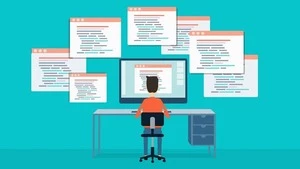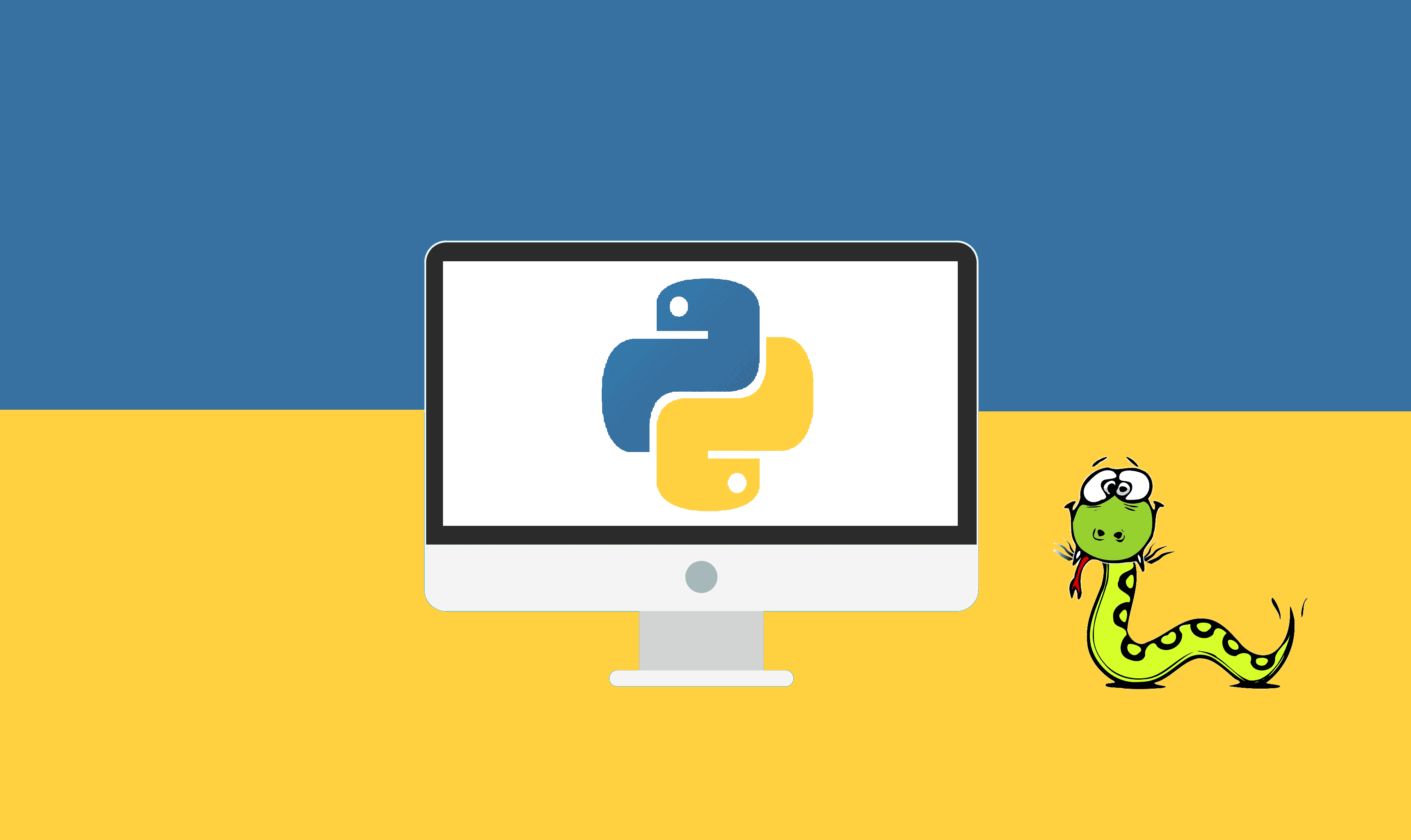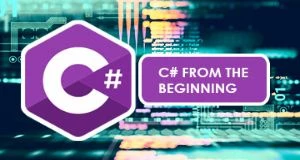This plan includes
- Instant access to 11,000+ online courses
- Play & Pause Course Videos
 HD Video Recorded Lectures
HD Video Recorded Lectures- Learn on Mobile/PC/Tablet
- Quizzes and Real Projects
- Lifetime Course Certificate
- Instructor Chat Support
- Cancel Plan Anytime
What you'll learn?
- Learn to program with one of the most powerful programming languages that exists today, C++.
- Learn Modern C++ rather than an obsolete version of C++ that most other courses do not teach!
- Learn C++ using a proven curriculum that covers more material than most C++ Schools, Institute and university courses.!.
- Includes Quizzes, Live Coding Exercises, Practical Practice Exercises and Assignments
- Obtain the key concepts of programming that will also apply to other programming languages.
- Learn C++ features from basic to more advanced such as inheritance and polymorphic functions.
- Learn to use CodeBlock and Visual Studio Code with C++
Course Overview
Description
Which programming language is often considered a badge of honour among software developers? C++
Which programming language can you learn that when added to your resume, will often get you a job interview? C++
Which programming language is routinely ranked in the top 5 programming languages by popularity, and has been consistently in the top 10 for close to 20 years? C++
वर्णन
किस प्रोग्रामिंग भाषा को अक्सर सॉफ्टवेयर डेवलपर्स के बीच सम्मान का बैज माना जाता है? C++
आप कौन सी प्रोग्रामिंग भाषा सीख सकते हैं जो जब आपके रिज्यूमे में जोड़ा जाता है, तो अक्सर आपको नौकरी का साक्षात्कार मिलेगा? C++
कौन सी प्रोग्रामिंग भाषा नियमित रूप से लोकप्रियता से शीर्ष 5 प्रोग्रामिंग भाषाओं में स्थान पर है, और लगभग 20 वर्षों से लगातार शीर्ष 10 में रही है? C++
Why you should learn C++?
Much, if not most of the software written today is still written in C++, and this has been the case for many years.
Not only is C++ popular, but it is also a very relevant language. If you go to GitHub you will see a huge number of active C++ repositories and C++ is also extremely active on stack overflow.
There are many, many leading software titles written entirely or partly in C++. These include the Windows, Linux, and Mac OSX operating systems!
Many Adobe products such as Photoshop and Illustrator, MySQL and MongoDB database engines, and many more are written in C++.
Leading tech companies use C++ for many of their products and internal research and development. These include Amazon, Apple, Microsoft, PayPal, Google, Facebook, Oracle, and many more.
आपको C++ क्यों सीखना चाहिए?
बहुत कुछ, यदि आज लिखे गए अधिकांश सॉफ़्टवेयर अभी भी सी ++ में लिखे गए हैं, और यह कई वर्षों से मामला है।
न केवल सी ++ लोकप्रिय है, बल्कि यह एक बहुत ही प्रासंगिक भाषा भी है। यदि आप GitHub पर जाते हैं तो आप बड़ी संख्या में सक्रिय सी ++ रिपॉजिटरी देखेंगे और सी ++ स्टैक ओवरफ्लो पर भी बेहद सक्रिय है।
सी ++ में पूरी तरह से या आंशिक रूप से लिखे गए कई, कई प्रमुख सॉफ्टवेयर शीर्षक हैं। इनमें विंडोज, लिनक्स और मैक ओएसएक्स ऑपरेटिंग सिस्टम शामिल हैं!
कई एडोब उत्पाद जैसे फ़ोटोशॉप और इलस्ट्रेटर, MySQL और MongoDB डेटाबेस इंजन, और कई और सी ++ में लिखे गए हैं।
अग्रणी तकनीकी कंपनियां अपने कई उत्पादों और आंतरिक अनुसंधान और विकास के लिए सी ++ का उपयोग करती हैं। इनमें अमेजन, एप्पल, माइक्रोसॉफ्ट, PayPal, गूगल, फेसबुक, ओरेकल और कई अन्य शामिल हैं।
Can you see how learning C++ will open up more career opportunities for you?
If more professional companies are using C++, it stands to reason that there is going to be more of a demand for C++ programmers.
But the main reason programmers should probably learn C++ is that it is so powerful!
What do I mean by powerful?
क्या आप देख सकते हैं कि सी ++ सीखना आपके लिए अधिक कैरियर के अवसर कैसे खोलेगा?
यदि अधिक पेशेवर कंपनियां सी ++ का उपयोग कर रही हैं, तो इसका कारण यह है कि सी ++ प्रोग्रामर की अधिक मांग होने जा रही है।
लेकिन प्रोग्रामर को शायद सी ++ सीखना चाहिए, इसका मुख्य कारण यह है कि यह इतना शक्तिशाली है!
शक्तिशाली से मेरा क्या मतलब है?
C++ is super fast and is a general-purpose programming language that supports both procedure and object-oriented programming making it very flexible.
It can scale easily. And it can be portable as well.
C++ can do many things that other languages just can't.
That's why nearly every primary language has a way to interface with code written in C++.
Since C++ has influenced so many languages, if you know C++ you'll likely see elements from C++ in new languages you learn.
सी ++ सुपर फास्ट है और एक सामान्य उद्देश्य वाली प्रोग्रामिंग भाषा है जो प्रक्रिया और ऑब्जेक्ट-ओरिएंटेड प्रोग्रामिंग दोनों का समर्थन करती है जो इसे बहुत लचीला बनाती है।
यह आसानी से स्केल कर सकता है। और यह पोर्टेबल भी हो सकता है।
सी ++ कई चीजें कर सकता है जो अन्य भाषाएं नहीं कर सकती हैं।
यही कारण है कि लगभग हर प्राथमिक भाषा में सी ++ में लिखे गए कोड के साथ इंटरफ़ेस करने का एक तरीका है।
चूंकि सी ++ ने इतनी सारी भाषाओं को प्रभावित किया है, यदि आप सी ++ जानते हैं तो आप संभवतः नई भाषाओं में सी ++ से तत्व देखेंगे जो आप सीखते हैं
How can a beginner learn C++?
Finding a good course, taught by an instructor with many years of experience in C++ is critical, as is the need for the instructor to have the necessary skills to be able to teach you the language.
So not only will you be learning C++ from an expert C++ programmer, but you'll also be taught by an instructor who has successfully taught at the university level for many years.
As a result, you can take this course with confidence, knowing that you will learn C++ the right way, and in the shortest possible timeframe.
एक शुरुआती सी ++ कैसे सीख सकता है?
सी ++ में कई वर्षों के अनुभव के साथ एक प्रशिक्षक द्वारा पढ़ाया जाने वाला एक अच्छा पाठ्यक्रम खोजना महत्वपूर्ण है, क्योंकि प्रशिक्षक के पास आपको भाषा सिखाने में सक्षम होने के लिए आवश्यक कौशल होने की आवश्यकता है।
तो न केवल आप एक विशेषज्ञ सी ++ प्रोग्रामर से सी ++ सीखेंगे, बल्कि आपको एक प्रशिक्षक द्वारा भी पढ़ाया जाएगा जिसने कई वर्षों तक विश्वविद्यालय स्तर पर सफलतापूर्वक पढ़ाया है।
नतीजतन, आप इस कोर्स को आत्मविश्वास के साथ ले सकते हैं, यह जानते हुए कि आप सी ++ को सही तरीके से सीखेंगे, और कम से कम संभव समय सीमा में।
Which version of C++ should I learn?
C++ has had many version releases and updates over the years. It's a sad fact that most C++ courses do not teach Modern C++, but focus on old, obsolete versions of C++.
I will teach you Modern C++ (specifically C++ 17 and C++20).
Learn C++ the right way, with Modern C++, as taught by me in this course.
मुझे सी ++ का कौन सा संस्करण सीखना चाहिए?
सी ++ में वर्षों से कई संस्करण रिलीज और अपडेट हुए हैं। यह एक दुखद तथ्य है कि अधिकांश सी ++ पाठ्यक्रम आधुनिक सी ++ नहीं सिखाते हैं, लेकिन सी ++ के पुराने, अप्रचलित संस्करणों पर ध्यान केंद्रित करते हैं।
मैं आपको आधुनिक सी ++ (विशेष रूप से सी ++ 17 और सी ++ 20) सिखाऊंगा।
आधुनिक सी ++ के साथ सी ++ को सही तरीके से सीखें, जैसा कि इस कोर्स में मेरे द्वारा सिखाया गया है।
Is C++ difficult to learn?
With all the power and flexibility of C++ comes complexity.
There is no question that C++ is one of the most complex programming languages out there.
But with the right instructor and the right training, you really can get up to speed with C++ quickly, and that's what this course is all about.
क्या C++ सीखना मुश्किल है?
सी ++ की सभी शक्ति और लचीलेपन के साथ जटिलता आती है।
कोई सवाल नहीं है कि सी ++ वहां सबसे जटिल प्रोग्रामिंग भाषाओं में से एक है।
लेकिन सही प्रशिक्षक और सही प्रशिक्षण के साथ, आप वास्तव में सी ++ के साथ जल्दी से गति प्राप्त कर सकते हैं, और यही वह है जो यह कोर्स है।
What will you learn in this course? (आप इस कोर्स में क्या सीखेंगे?)
The course assumes no previous experience with C++ (or even programming in general), and you will end up with the skills to create your own programs in C++.
पाठ्यक्रम सी ++ (या यहां तक कि सामान्य रूप से प्रोग्रामिंग) के साथ कोई पिछला अनुभव नहीं मानता है, और आप सी ++ में अपने स्वयं के कार्यक्रम बनाने के लिए कौशल के साथ समाप्त होंगे।
Key topics covered include. (कवर किए गए प्रमुख विषयों में शामिल हैं।)
* Looping with while, do/while for, range-based statements and recursion
* Performing calculations and displaying results
* Functions
* Pointers
* Using existing classes and creating objects
* Creating your own classes
* Constructors and Destructors
* Copy and Move semantics including Copy constructors, Move constructors, and copy and move assignment
* How to overload operators
* Using inheritance and class hierarchies
* Using Polymorphic functions and dynamic binding
* Using smart pointers
* Using stream I/O
* An introduction to Exception Handling
* And much more.
Pre-requisites
- A computer or laptop with Windows, or any other OS
- This course is for Absolute Beginners! No prior knowledge is required!
- Passion for coding and problem solutions!
Target Audience
- Very Beginner, C++ Developers or Learner
- People totally new to programming {no prior knowledge required -Basic of computer just!}
- Students having C++ Language as subject in Schools and Colleges like BCA MCA and Engr.
- Students in Institutes, Schools, Colleges or Universities
Curriculum 317 Lectures 20:42:06
-
Section 1 : Introduction
-
Section 2 : Getting Started
- Lecture 1 :
- Environment Setup
- Lecture 2 :
- C++ Program Structure
- Lecture 3 :
- Writing First C++ Program
-
Section 3 : C++ Output and Comments
- Lecture 1 :
- C++ Output
- Lecture 2 :
- Exercise#1
- Lecture 3 :
- Exercise#2
- Lecture 4 :
- Exercise#3
- Lecture 5 :
- Solution Exercise#1
- Lecture 6 :
- Solution Exercise#3
- Lecture 7 :
- Solution Exercise#2
- Lecture 8 :
- Comments in C++
-
Section 4 : Practical Practice#1
- Lecture 1 :
- Milestone#1
- Lecture 2 :
- Solution Exercise#2
- Lecture 3 :
- Exercise#2
- Lecture 4 :
- Solution Exercise#1
- Lecture 5 :
- Exercise#1
-
Section 5 : Variables Data Type and User Input in C++
- Lecture 1 :
- Variables in C++ Part-1
- Lecture 2 :
- Variables in C++ Part-2
- Lecture 3 :
- Variables in C++ Part-3
- Lecture 4 :
- Declaring or Creating Variables in C++
- Lecture 5 :
- Declaring or Creating Multiple Variables in C++
- Lecture 6 :
- Exercise#1
- Lecture 7 :
- Solution Exercise#1
- Lecture 8 :
- Exercise#2
- Lecture 9 :
- Solution Exercise#2
- Lecture 10 :
- Constants in C++
-
Section 6 : Operators in C++
- Lecture 1 :
- Brief to Operators in C++
- Lecture 2 :
- Exercise#1
- Lecture 3 :
- Solution Exercise#1
- Lecture 4 :
- Exercise#2
- Lecture 5 :
- Solution Exercise#2
- Lecture 6 :
- Milestone#2
-
Section 7 : Practical Practice#2 and Type Casting
- Lecture 1 :
- Exercise#1
- Lecture 2 :
- Solution Exercise#1
- Lecture 3 :
- Exercise#2
- Lecture 4 :
- Solution Exercise#2
- Lecture 5 :
- Exercise#3
- Lecture 6 :
- Solution Exercise#3
- Lecture 7 :
- Exercise#4
- Lecture 8 :
- Solution Exercise#4
- Lecture 9 :
- Exercise#5
- Lecture 10 :
- Solution Exercise#5
- Lecture 11 :
- Exercise#6
- Lecture 12 :
- Solution Exercise#6
- Lecture 13 :
- Exercise#7
- Lecture 14 :
- Solution Exercise#7
- Lecture 15 :
- Exercise#8
- Lecture 16 :
- Solution Exercise#8
- Lecture 17 :
- Type Casting In C++
- Lecture 18 :
- Implicit Type Casting in C++
- Lecture 19 :
- Explicit Type Casting in C++
- Lecture 20 :
- Exercise#9
- Lecture 21 :
- Solution Exercise#9
- Lecture 22 :
- Swap In C++
-
Section 8 : Conditional Constructs in C++
- Lecture 1 :
- Solution Exercise#5
- Lecture 2 :
- Exercise#5
- Lecture 3 :
- Solution Exercise#4
- Lecture 4 :
- Exercise#4
- Lecture 5 :
- More on Logical Operators
- Lecture 6 :
- Multiple Construct Exercise
- Lecture 7 :
- Multiple Construct in C++
- Lecture 8 :
- Ternary Operator in C++
- Lecture 9 :
- Solution Exercise#3
- Lecture 10 :
- Exercise#3
- Lecture 11 :
- Solution Exercise#2
- Lecture 12 :
- Exercise#2
- Lecture 13 :
- Solution Exercise#1
- Lecture 14 :
- Exercise#1
- Lecture 15 :
- Conditional Constructs in C++
- Lecture 16 :
- an Introduction
-
Section 9 : Practical Practice#3
- Lecture 1 :
- Exercise#1
- Lecture 2 :
- Solution Exercise#1
- Lecture 3 :
- Exercise#2
- Lecture 4 :
- Solution Exercise#2
- Lecture 5 :
- Exercise#3
- Lecture 6 :
- Solution Exercise#3
- Lecture 7 :
- Exercise#4
- Lecture 8 :
- Solution Exercise#4
- Lecture 9 :
- Exercise#5
- Lecture 10 :
- Solution Exercise#5
- Lecture 11 :
- Exercise#6
- Lecture 12 :
- Solution Exercise#6
- Lecture 13 :
- Milestone#3
- Lecture 14 :
- Switch Case Story
-
Section 10 : Looping and Iteration in C++
- Lecture 1 :
- Introduction
- Lecture 2 :
- Why Use Loop?
- Lecture 3 :
- Exercise#1
- Lecture 4 :
- Solution Exercise#1
- Lecture 5 :
- Exercise#2
- Lecture 6 :
- Solution Exercise#2
- Lecture 7 :
- While and do..While Loop
- Lecture 8 :
- Exercise#3
- Lecture 9 :
- Solution Exercise#3
- Lecture 10 :
- For Loop in C++
-
Section 11 : Practical Practice#4 with Break and Continue Statements
- Lecture 1 :
- Exercise#1
- Lecture 2 :
- Solution Exercise#1
- Lecture 3 :
- Exercise#2
- Lecture 4 :
- Solution Exercise#2
- Lecture 5 :
- Exercise#3
- Lecture 6 :
- Solution Exercise#3
- Lecture 7 :
- Exercise#4
- Lecture 8 :
- Solution Exercise#4
- Lecture 9 :
- Exercise#5
- Lecture 10 :
- Solution Exercise#5
- Lecture 11 :
- Exercise#6
- Lecture 12 :
- Solution Exercise#6
- Lecture 13 :
- Exercise#7
- Lecture 14 :
- Solution Exercise#7
- Lecture 15 :
- Exercise#8
- Lecture 16 :
- Exercise#9
- Lecture 17 :
- Exercise#10
- Lecture 18 :
- Exercise#11
- Lecture 19 :
- Solution Exercise#8
- Lecture 20 :
- Solution Exercise#9
- Lecture 21 :
- Solution Exercise#10
- Lecture 22 :
- Solution Exercise#11
- Lecture 23 :
- Milestone#4
-
Section 12 : Functions in C++
- Lecture 1 :
- Why we need Functions?
- Lecture 2 :
- Function-What is Function?
- Lecture 3 :
- Introduction to Functions
- Lecture 4 :
- Exercise#1
- Lecture 5 :
- Solution Exercise#1
- Lecture 6 :
- Exercise#2
- Lecture 7 :
- Solution Exercise#2
- Lecture 8 :
- Exercise#3
- Lecture 9 :
- Exercise#4
- Lecture 10 :
- Solution Exercise#3
- Lecture 11 :
- Solution Exercise#4
- Lecture 12 :
- Exercise#5
- Lecture 13 :
- Solution Exercise#5
- Lecture 14 :
- Function Overloading in C++
-
Section 13 : Practical Practice#5- Functions
- Lecture 1 :
- Exercise#1
- Lecture 2 :
- Solution Exercise#1
- Lecture 3 :
- Exercise#2
- Lecture 4 :
- Solution Exercise#2
- Lecture 5 :
- Exercise#3
- Lecture 6 :
- Solution Exercise#3
- Lecture 7 :
- Exercise#4
- Lecture 8 :
- Solution Exercise#4
- Lecture 9 :
- Exercise#5
- Lecture 10 :
- Solution Exercise#5
-
Section 14 : Array-Array in 1D C++
- Lecture 1 :
- Array-Concept
- Lecture 2 :
- Array Declaration
- Lecture 3 :
- Array Access Modify & Display
- Lecture 4 :
- Exercise#1
- Lecture 5 :
- Solution Exercise#1
- Lecture 6 :
- Exercise#2
- Lecture 7 :
- Solution Exercise#2
- Lecture 8 :
- Exercise#3
- Lecture 9 :
- Solution Exercise#3
- Lecture 10 :
- Exercise#4
- Lecture 11 :
- Solution Exercise#4
- Lecture 12 :
- Exercise#5
- Lecture 13 :
- Solution Exercise#5
-
Section 15 : Practical Practice#6
- Lecture 1 :
- Exercise#1
- Lecture 2 :
- Solution Exercise#1
- Lecture 3 :
- Exercise#2
- Lecture 4 :
- Solution Exercise#2
- Lecture 5 :
- Exercise#3
- Lecture 6 :
- Solution Exercise#3
- Lecture 7 :
- Exercise#4
- Lecture 8 :
- Solution Exercise#4
- Lecture 9 :
- Exercise#5
- Lecture 10 :
- Solution Exercise#5
- Lecture 11 :
- Exercise#6
- Lecture 12 :
- Solution Exercise#6
-
Section 16 : Array-Array in 2D C++
- Lecture 1 :
- Array-2D in C++
- Lecture 2 :
- Exercise#1
- Lecture 3 :
- Solution Exercise#1
- Lecture 4 :
- Exercise#2
- Lecture 5 :
- Solution Exercise#2
- Lecture 6 :
- Exercise#3
- Lecture 7 :
- Solution Exercise#3
-
Section 17 : Pointers in C++
- Lecture 1 :
- Pointers in C++
- Lecture 2 :
- Introduction to Pointers
- Lecture 3 :
- Pointer Declaration & Usage in C++
- Lecture 4 :
- Swap Functions in C++
- Lecture 5 :
- Exercise#1
- Lecture 6 :
- Solution Exercise#1
- Lecture 7 :
- Exercise#2
- Lecture 8 :
- Solution Exercise#2
- Lecture 9 :
- Exercise#3
- Lecture 10 :
- Solution Exercise#3
- Lecture 11 :
- Exercise#4
- Lecture 12 :
- Solution Exercise#4
- Lecture 13 :
- Exercise#5
- Lecture 14 :
- Solution Exercise#5
-
Section 18 : String in C++
- Lecture 1 :
- String Introduction
- Lecture 2 :
- Exercise#1
- Lecture 3 :
- Solution Exercise#1
- Lecture 4 :
- Input and Output String
- Lecture 5 :
- Exercise#2
- Lecture 6 :
- Solution Exercise#2
- Lecture 7 :
- Exercise#3
- Lecture 8 :
- Solution Exercise#3
- Lecture 9 :
- Exercise#4
- Lecture 10 :
- Solution Exercise#4
- Lecture 11 :
- String Function in C++
-
Section 19 : Practical Practice#7
- Lecture 1 :
- Exercise#1
- Lecture 2 :
- Solution Exercise#1
- Lecture 3 :
- Exercise#2
- Lecture 4 :
- Exercise#3
- Lecture 5 :
- Solution Exercise#3
- Lecture 6 :
- Solution Exercise#2
- Lecture 7 :
- Exercise#4
- Lecture 8 :
- Solution Exercise#4
- Lecture 9 :
- Exercise#5
- Lecture 10 :
- Solution Exercise#5
- Lecture 11 :
- Exercise#6
- Lecture 12 :
- Solution Exercise#6
-
Section 20 : Recursion In C++
- Lecture 1 :
- Recursion Concept in C++
- Lecture 2 :
- Exercise#1
- Lecture 3 :
- Solution Exercise#1
- Lecture 4 :
- Exercise#2
- Lecture 5 :
- Solution Exercise#2
- Lecture 6 :
- Exercise#3
- Lecture 7 :
- Solution Exercise#3
- Lecture 8 :
- Exercise#4
- Lecture 9 :
- Solution Exercise#4
- Lecture 10 :
- Exercise#5
- Lecture 11 :
- Solution Exercise#5
-
Section 21 : Practical Practice#8
- Lecture 1 :
- Exercise#1
- Lecture 2 :
- Solution Exercise#1
- Lecture 3 :
- Exercise#2
- Lecture 4 :
- Solution Exercise#2
- Lecture 5 :
- Exercise#3
- Lecture 6 :
- Solution Exercise#3
- Lecture 7 :
- Exercise#4
- Lecture 8 :
- Solution Exercise#4
- Lecture 9 :
- Exercise#5
- Lecture 10 :
- Solution Exercise#5
-
Section 22 : Structure in C++
- Lecture 1 :
- Structure in C++
- Lecture 2 :
- Exercise#1
- Lecture 3 :
- Solution Exercise#1
- Lecture 4 :
- Exercise#2
- Lecture 5 :
- Solution Exercise#2
- Lecture 6 :
- Exercise#3
- Lecture 7 :
- Solution Exercise#3
- Lecture 8 :
- Exercise#4
- Lecture 9 :
- Solution Exercise#4
- Lecture 10 :
- Exercise#5
- Lecture 11 :
- Solution Exercise#5
-
Section 23 : OOPs C++ (Classes & Objects)
- Lecture 1 :
- OOP Introduction
- Lecture 2 :
- Creating Class in C++
- Lecture 3 :
- Exercise#1
- Lecture 4 :
- Solution Exercise#1
- Lecture 5 :
- Exercise#2
- Lecture 6 :
- Solution Exercise#2
- Lecture 7 :
- Exercise#3
- Lecture 8 :
- Solution Exercise#3
-
Section 24 : Practical Practice#9-OOPs
- Lecture 1 :
- Exercise#1
- Lecture 2 :
- Solution Exercise#1
- Lecture 3 :
- Exercise#2
- Lecture 4 :
- Solution Exercise#2
- Lecture 5 :
- Exercise#3
- Lecture 6 :
- Solution Exercise#3
- Lecture 7 :
- Exercise#4
- Lecture 8 :
- Solution Exercise#4
- Lecture 9 :
- Exercise#5
- Lecture 10 :
- Solution Exercise#5
-
Section 25 : Constructors & Destructors in C++
- Lecture 1 :
- Constructor & Destructor Introduction
- Lecture 2 :
- Exercise#1
- Lecture 3 :
- Solution Exercise#1
-
Section 26 : Practical Practice#10
- Lecture 1 :
- Exercise#1
- Lecture 2 :
- Solution Exercise#1
- Lecture 3 :
- Exercise#2
- Lecture 4 :
- Solution Exercise#2
- Lecture 5 :
- Exercise#3
- Lecture 6 :
- Solution Exercise#3
- Lecture 7 :
- Exercise#4
- Lecture 8 :
- Solution Exercise#4
- Lecture 9 :
- Exercise#5
- Lecture 10 :
- Solution Exercise#5
-
Section 27 : Inheritance in C++
- Lecture 1 :
- Inheritance in C++
- Lecture 2 :
- Exercise#1-Simple Inheritance
- Lecture 3 :
- Exercise#2-Simple Private Inheritance
- Lecture 4 :
- Exercise#3-Accept and Display Student Details Simple Inheritance
-
Section 28 : Practical Practice#11
- Lecture 1 :
- Exercise#1
- Lecture 2 :
- Solution Exercise#1
- Lecture 3 :
- Exercise#2
- Lecture 4 :
- Solution Exercise#2
- Lecture 5 :
- Exercise#3
- Lecture 6 :
- Solution Exercise#3
- Lecture 7 :
- Exercise#4
- Lecture 8 :
- Solution Exercise#4
- Lecture 9 :
- Exercise#5
- Lecture 10 :
- Solution Exercise#5
-
Section 29 : Operator Overloading & Exception Handling
- Lecture 1 :
- Operator Overloading in C++
- Lecture 2 :
- Exception Handling in C++
- Lecture 3 :
- Exercise#1-Overload Unary Operator
- Lecture 4 :
- Exercise#2-Try, Catch & Throw in C++
-
Section 30 : Practical Practice#12
- Lecture 1 :
- Exercise#1
- Lecture 2 :
- Solution Exercise#1
- Lecture 3 :
- Exercise#2
- Lecture 4 :
- Solution Exercise#2
- Lecture 5 :
- Exercise#3
- Lecture 6 :
- Solution Exercise#3
- Lecture 7 :
- Exercise#4
- Lecture 8 :
- Solution Exercise#4
- Lecture 9 :
- Exercise#5
- Lecture 10 :
- Solution Exercise#5
-
Section 31 : File Management in C++
- Lecture 1 :
- File Management in C++
- Lecture 2 :
- Exercise#1-Opening File in C++
- Lecture 3 :
- Exercise#2-Wrting and Appending File in C++
- Lecture 4 :
- Exercise#3-Reading from File in C++
-
Section 32 : Practical Practice#13
- Lecture 1 :
- Exercise#1
- Lecture 2 :
- Solution Exercise#1
- Lecture 3 :
- Exercise#2
- Lecture 4 :
- Solution Exercise#2
- Lecture 5 :
- Exercise#3
- Lecture 6 :
- Solution Exercise#3
- Lecture 7 :
- Exercise#4
- Lecture 8 :
- Solution Exercise#4
- Lecture 9 :
- Exercise#5
- Lecture 10 :
- Solution Exercise#5
-
Section 33 : Vote of Thanks!
- Lecture 1 :
- Congratulation You Made It!
Our learners work at
Frequently Asked Questions
-
How do i access the course after purchase?
It's simple. When you sign up, you'll immediately have unlimited viewing of thousands of expert courses, paths to guide your learning, tools to measure your skills and hands-on resources like exercise files. There’s no limit on what you can learn and you can cancel at any time. -
Are these video based online self-learning courses?
Yes. All of the courses comes with online video based lectures created by certified instructors. Instructors have crafted these courses with a blend of high quality interactive videos, lectures, quizzes & real world projects to give you an indepth knowledge about the topic. -
Can i play & pause the course as per my convenience?
Yes absolutely & thats one of the advantage of self-paced courses. You can anytime pause or resume the course & come back & forth from one lecture to another lecture, play the videos mulitple times & so on. -
How do i contact the instructor for any doubts or questions?
Most of these courses have general questions & answers already covered within the course lectures. However, if you need any further help from the instructor, you can use the inbuilt Chat with Instructor option to send a message to an instructor & they will reply you within 24 hours. You can ask as many questions as you want. -
Do i need a pc to access the course or can i do it on mobile & tablet as well?
Brilliant question? Isn't it? You can access the courses on any device like PC, Mobile, Tablet & even on a smart tv. For mobile & a tablet you can download the Learnfly android or an iOS app. If mobile app is not available in your country, you can access the course directly by visting our website, its fully mobile friendly. -
Do i get any certificate for the courses?
Yes. Once you complete any course on our platform along with provided assessments by the instructor, you will be eligble to get certificate of course completion.
-
For how long can i access my course on the platform?
You require an active subscription to access courses on our platform. If your subscription is active, you can access any course on our platform with no restrictions. -
Is there any free trial?
Currently, we do not offer any free trial. -
Can i cancel anytime?
Yes, you can cancel your subscription at any time. Your subscription will auto-renew until you cancel, but why would you want to?
Instructor

235 Course Views
1 Courses



 Tech & IT
Tech & IT
 Business
Business
 Coding & Developer
Coding & Developer
 Finance & Accounting
Finance & Accounting
 Academics
Academics
 Office Applications
Office Applications
 Art & Design
Art & Design
 Marketing
Marketing
 Health & Wellness
Health & Wellness
 Sounds & Music
Sounds & Music
 Lifestyle
Lifestyle
 Photography
Photography

















